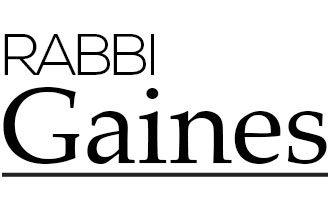Arousal (spiritual awakening) is a profound thing, for who can deny the mental, emotional, and yes, even physical impact, a sudden, “Now I see,” moment creates? Kabbalah teaches that far greater than service in a moment of deep arousal (during which one’s prayers, studies, and good deeds achieve optimal expression) is service from “limitation,” or, service derived from struggle with one’s inner darkness (one’s personal limitations). To say it another way, anyone can boast spiritual accomplishment when the lands “flow with milk and honey” (Deuteronomy 31:20), i.e. when the very highest levels of Divine consciousness flow effortlessly into one’s mind, heart, and limbs (as it is the nature of people to serve when feeling good). The challenge, explains Kabbalah, is service at “night,” i.e. in moments of constricted consciousness when God appears/feels far away (distant from the soul and body), for the maintaining of faithfulness in moments of uncertainty has always been a core virtue of the righteous. This idea is beautifully expressed in the Code of Jewish Law (the book governing religious Jewish life) wherein, we learn that the path of the righteous (elevated souls of the generation) is to constantly affix before their eyes King David’s immortal words, “I place God before me always” (Psalm 16:8). The simple meaning of the text suggests a service without “borders,” or, perpetual service that exists irrespective of the boundaries erected by subjective feelings (for “always” means ALWAYS, whether happy or sad, hot or cold, day or night). Hence, it is the righteous - the polished souls of the generation - who achieve such a lofty form of continuous and uninterrupted service (disconnected as they are from the limitations of ego, or subjective self). That being said, there is an important dimension to this teaching that any of us can achieve (irrespective of our level of soul), provided we learn to perceive “darkness” (challenge) from a slightly more elevated perspective. Explains the Ozer Eliyahu (student of Rabbi Menachem Mendel of Kotzk), if we examine the above verse (Psalm 16:8) a little deeper, a remarkable idea emerges. The Hebrew word “L’negdi” (translated in English to mean “before me”) derives from the same Hebrew root (“Neged”) as the word “against.” Factoring that into the equation, the above verse from King David (Psalm 16:8) can now be read, “I put God (even in) what’s against me always!” Meaning simply, I serve God even when I feel that the world is against me - when alien forces rise to challenge my spiritual progress.
And what, then, is the lesson?
To serve God as the consummately righteous do (even if we do not possess, in truth, their lofty traits), we need only begin by taking a stance for God - for His principles - even when the world (within and without) acts “against” us (tells us it’s unpopular to do so).
So, rise one rise all, you warriors of God who walk the Divine path and care for our Master’s honor, for whether righteous or only striving to be, you can absolutely take a firm stance against the ever growing “L’negdi,” (“against” as explained above), in all of its forms - spiritual and physical. Remember, the rising tides of perversion and gross secularism (that threaten every sacred foundation upon which this, God’s world, is built), show no signs of slowing down. In fact, they are only growing stronger, bolder, and more capable. They are pushing, without remorse, into every imaginable institution. Why shouldn’t we, God’s soldiers, do exactly the same?




